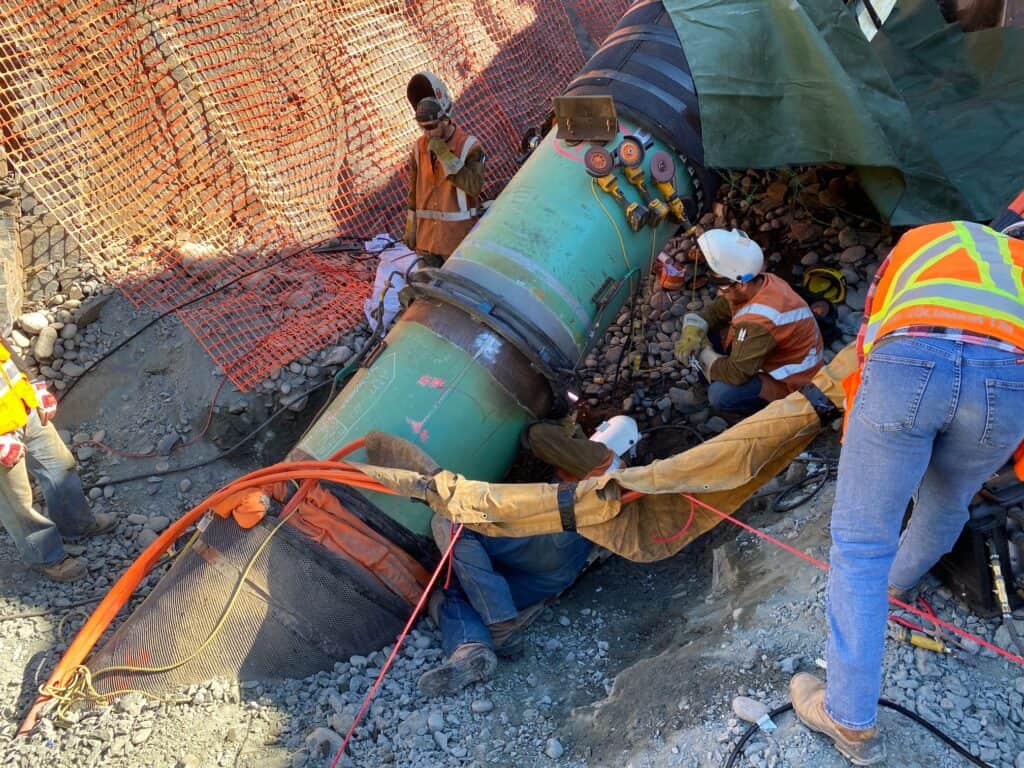At the recent CEPA Foundation Quality Summit we were pleased to hear from Simon Kirkland, a welding consultant currently working as a subject matter expert on the Trans Mountain Pipeline Expansion project. Kirkland discussed the challenges and opportunities facing the pipeline welding sector and offered some useful insights and suggestions.
“Pipeline welding, like most industries today, is facing a severe workforce shortage. I hear almost daily about operators who can’t find welders or can’t find good welders,” said Kirkland. “Often they’re having to oscillate between workers who are comfortable with newer automated technologies and those who aren’t depending on who they can find.”
Kirkland explained that there are three primary challenges contributing to the shortage of qualified pipeline welders:
1. Apprenticeship training
The pipeline industry is not represented on the apprenticeship boards of the technical schools. That means apprenticeship training is geared very much toward work in fabrication shops and facilities or structural steel welding.
“There is good safety training available online,” said Kirkland. “But when it comes to skills training, most operators try to hire people who already know what they’re doing. We have an older workforce who learned their skills on the farm and have typically worked on the pipelines during their off-season, but as that workforce ages, and as farms become increasingly consolidated with more year-round work, the availability of that workforce is dwindling.”
SAIT has confirmed that they would be open to including pipeline welding in their apprenticeship program. “We need some sort of body – whether it’s the regulator or an industry association – to take the lead in providing guidance on training requirements,” said Kirkland.
2. Technology gaps
Pipeline welding is a very specialist skill compared to other types of welding, but Kirkland maintains that this doesn’t always have to be the case.
Automated pipeline welding systems are extremely specific to pipelines, but the manufacturers of those high-end technologies provide training to ensure that workers are competent and capable.
The more manual techniques – for instance, those used over rough terrain or for joining strings of a pipeline – have evolved over the years to be similarly specific to pipelines; “but you could do those welds with the same techniques that might be found in a fabrication shop, and without the high infrastructure requirements,” said Kirkland.
The adoption of welding techniques that are more commonly used in other industries would open up the pool of potential workers.
3. Shift management
Pipeline welders often work for as long as six months on a project, on a six-on, one-off schedule – a schedule that often leads to burnout for workers. It also makes the job very unattractive for anyone with a family, so it’s perhaps not surprising that the biggest gaps in the pipeline welding workforce include people in their 30s and women.
“Smarter shift management could attract an entirely new workforce,” said Kirkland. “Cross-shifts, where one crew is on and one is off at any given time would give people time to go home, see their families and rest.
Pipeline welding is a career that has typically had multiple barriers to entry: the expense of equipment, the unstable nature of work availability, the fact that jobs are usually filled before they are posted and the unsociable shifts to name just a few. Some of the suggestions made by Kirkland could help attract the kind of skilled, trained professionals that the pipeline industry so badly needs.
Over the next few weeks, we will be hearing from more of the presenters from the CEPA Foundation Quality Summit. Stay tuned!




